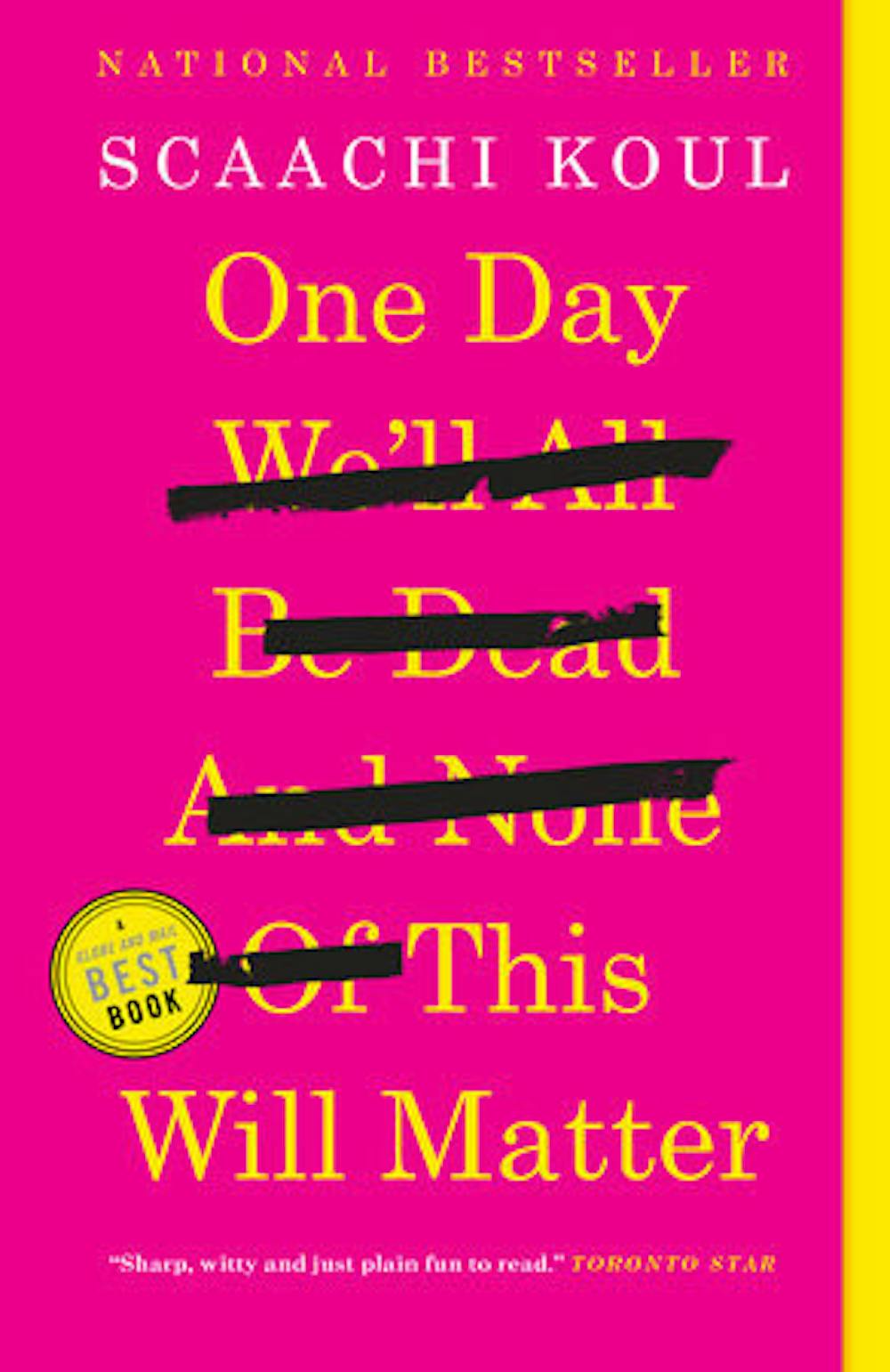"One Day We'll All Be Dead and None Of This Will Matter" by Scaachi Koul
In her debut novel “One Day We’ll All Be Dead And None Of This Will Matter,” Scaachi Koul shows the reader a series of personal essays touching on subjects ranging from casual racism to body dysmorphia. A senior writer at Buzzfeed, Koul has written articles such as “2018 Wore Me The Hell Out,” "I Went To A Conference Full Of Conservatives Who Hated My Guts - And Told Me So” and "Are You Ready For Sex Robots? Too Bad, They’re Already Here.”
Koul takes her journalistic and humor skills that she learned from Buzzfeed and uses it to talk about her life. Even the first line, “Only idiots aren’t afraid of flying,” immediately shows what kind of narration Koul will provide for the rest of the book. She has this sarcastic take on almost everything, and she is so honest with her experiences that I never got the feeling she was holding back for the sake of being more relatable.
At the end of all the chapters, Koul added email threads between herself and her family, especially her father, showing us what kinds of people she grew up with instead of just telling us. This gives more life to the people that she is describing, and sometimes these email threads are the funniest part of the book.
Not every chapter is laugh-out-loud funny though. Koul is not shy about discussing racism, sexism, shadism, classism, xenophobia and body issues. One of my favorite chapters talks about a wedding she went to in India, and how she questioned the gender norms through the whole thing and felt out of place despite being Indian herself.
She starts this chapter off by talking about her young niece, who is only half Indian. Koul’s family was unhappy that her niece started showing signs of more Indian facial features. Koul talks about the microaggressions that she had to put up with in school because of her facial features, such as being called a “shark” because of her dark brown eyes.
In another chapter, “Size Me Up,” Koul talks about her journey through body dysmorphia and the constant battle of gaining and losing weight, shaving parts of her body and hating all the clothes in her closet for not fitting her right. Koul remembers at age 11 saying, “I wanted to dress like a girl, and not just a pretty girl but a hot girl, that poor definition of whatever makes a woman worth looking at, worth touching.”
Koul writes a whole chapter, titled “Hunting Season,” on rape culture and having to stick by her friends at bars to avoid unwanted contact. Even though all of these essays are personal accounts from Koul, many of her experiences can be relatable, especially to women.
Readers who enjoy authors like Roxane Gay and Lindy West will definitely love this book, although Koul’s writing may not be as refined as some readers might prefer in memoirs. If you wanted to just read an essay instead of the whole book I would recommend the chapters “Size Me Up,” “Hunting Season” and “Fair and Lovely.”















